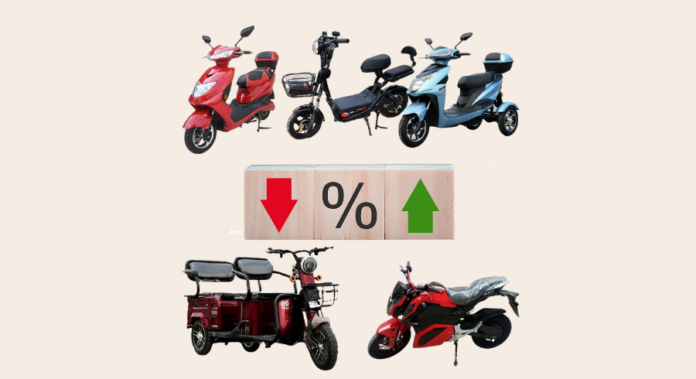The government has turned down commercial banks’ request to raise interest rates on loans for electric two- and three-wheelers, maintaining the current rate at 11%.
Banks had sought an additional 5% interest to cover insurance and operational costs.
According to reports, the issue was discussed during the fifth meeting of the Steering Committee on the Electric Vehicle Policy, chaired by Special Assistant to the Prime Minister on Industries and Production Haroon Akhtar Khan. The committee decided to hold further discussions with banks to negotiate fair financing rates.
As part of its electric vehicle strategy, the federal government has allocated a Rs9 billion subsidy in the current budget, with plans to provide a total of Rs100 billion over the next five years for electric two- and three-wheelers.
Experts at the meeting suggested that ideal bank financing rates should not exceed Kibor plus 1–2%. It was agreed that the price of electric two-wheelers should remain under Rs200,000, with a Rs60,000 government subsidy and the remainder financed through bank loans.
Participants also decided that manufacturers would be required to use lithium batteries in all electric two- and three-wheelers. The option for battery swapping will not be allowed to prevent theft, following similar practices adopted in China.
Minimum range requirements were set at 60 kilometres for two-wheelers and 180 kilometres for three-wheelers on a single charge. A technical briefing was given on battery specifications and performance, particularly in light of Pakistan’s climate conditions.
The committee reviewed the initial phase of the subsidy scheme and discussed implementation progress under the New Energy Vehicle (NEV) Policy 2025–2030.
SAPM Haroon Akhtar Khan said the Ministry of Industries and Production is coordinating with provincial governments to ensure uniform implementation of the policy. He added that environmental impact assessments would be conducted to measure reductions in greenhouse gas emissions and explore options for carbon credit trading.
He emphasised the government’s commitment to sustainable transport and highlighted that electric vehicles would reduce fuel imports and contribute to environmental improvement. The NEV policy, he said, aims to integrate technological, economic, and environmental objectives for long-term progress.




